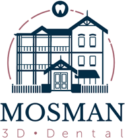How Does Smoking Damage Your Teeth?
Smoking is harmful to health in many ways, but as the entry point for tobacco, nicotine and other substances in smoke, the mouth can show some of their most visible effects.
Friday, 31st May 2024 is World No Tobacco Day, a campaign aimed at improving awareness of the harmful effects of tobacco use. Here’s some information about how smoking can damage teeth and increase your risk of developing other serious oral health problems.
If you’re concerned about the effects of smoking on your teeth and want to talk to a dentist in Mosman, get in touch today.

Tooth decay and cavities
Tooth decay is the erosion of teeth by bacteria that build up as plaque. These bacteria feed on sugars in food and drink and convert them into acids that wear down the enamel, eventually causing cavities or other damage.
Smokers generally have higher rates of tooth decay than non-smokers, as tobacco may support the build-up of plaque.
Gum disease and tooth loss
Plaque that builds up around the gum line can also infect or irritate the gum, leading to gingivitis. This is the early stage of gum disease, when the gums may be red, swollen and painful. If gingivitis isn’t treated, it can develop into periodontitis, which can cause gum recession and tooth loss.
Smokers are around twice as likely to develop gum disease, as smoking affects how the body responds to infections. The risk factor is higher for heavy smokers. As smoking reduces blood flow to the gums, gingivitis can also be harder to diagnose in smokers, so is less likely to be caught and treated early.
Oral cancer
Smoking increases the risk of many forms of cancer, including oral cancer, or mouth cancer. This can develop in any of the soft tissues around the mouth, but smoking-related cancer is most likely to affect the lips, tongue or floor of the mouth as the closest points of contact.
Smoking and drinking excessive alcohol are the most significant risk factors for oral cancer, which can have symptoms including persistent ulcers or discoloured patches in the mouth. Your dentists may provide an oral cancer screening as part of your regular check-up if you’re in a risk category.
Other effects of smoking
Smoking and other tobacco use can affect dental health and appearance in many other ways, including:
- Slower healing after a dental treatment or injury
- Lower success rate and higher risk of complications from oral surgery
- Higher risk of infections and mouth sores
- Tooth staining and discolouration from nicotine and tar
- Whitening of the inside of the mouth (keratosis)
- Bad breath or a bad taste in the mouth
- Impaired smell and taste
How can I lower my risks?
Quitting smoking or cutting down could significantly lower your risk for developing oral health problems and associated concerns. If you’re finding it difficult to give up the habit, you can try calling Quitline on 13 7848 (13 QUIT) for advice and support.
Other tips for improving your oral health include:
- Brushing your teeth twice a day using fluoride toothpaste
- Flossing or using other interdental cleaning tools daily
- Limiting sugar in your diet to avoid feeding plaque
- Drinking lots of water to stay hydrated and benefit from protective fluoride
- Visiting the dental clinic once or twice a year for a routine check-up and clean
Need to see a dentist in Sydney?
Are you worried about your teeth, or has it been longer than 6 months since you visited the dentist? Call our friendly team at Mosman 3D Dental on (02) 9969 8610 so we can book you in for a check-up and professional clean. You can also book online.

